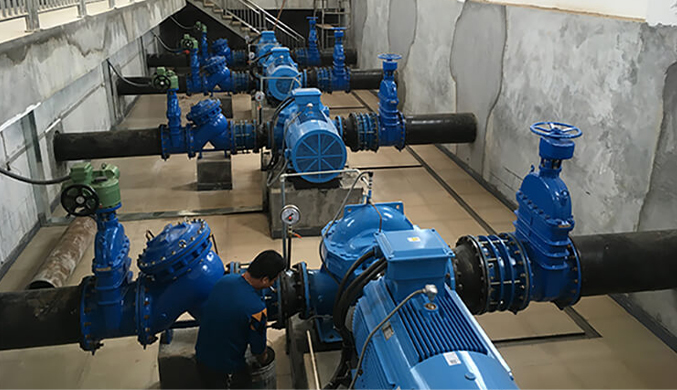Arabic
- Afrikaans
- Albanian
- Amharic
- Arabic
- Armenian
- Azerbaijani
- Basque
- Belarusian
- Bengali
- Bosnian
- Bulgarian
- Catalan
- Cebuano
- Corsican
- Croatian
- Czech
- Danish
- Dutch
- English
- Esperanto
- Estonian
- Finnish
- French
- Frisian
- Galician
- Georgian
- German
- Greek
- Gujarati
- Haitian Creole
- hausa
- hawaiian
- Hebrew
- Hindi
- Miao
- Hungarian
- Icelandic
- igbo
- Indonesian
- irish
- Italian
- Japanese
- Javanese
- Kannada
- kazakh
- Khmer
- Rwandese
- Korean
- Kurdish
- Kyrgyz
- Lao
- Latin
- Latvian
- Lithuanian
- Luxembourgish
- Macedonian
- Malgashi
- Malay
- Malayalam
- Maltese
- Maori
- Marathi
- Mongolian
- Myanmar
- Nepali
- Norwegian
- Norwegian
- Occitan
- Pashto
- Persian
- Polish
- Portuguese
- Punjabi
- Romanian
- Russian
- Samoan
- Scottish Gaelic
- Serbian
- Sesotho
- Shona
- Sindhi
- Sinhala
- Slovak
- Slovenian
- Somali
- Spanish
- Sundanese
- Swahili
- Swedish
- Tagalog
- Tajik
- Tamil
- Tatar
- Telugu
- Thai
- Turkish
- Turkmen
- Ukrainian
- Urdu
- Uighur
- Uzbek
- Vietnamese
- Welsh
- Bantu
- Yiddish
- Yoruba
- Zulu
Telephone: +86 13120555503
Email: frank@cypump.com
نوفمبر . 23, 2024 21:56 Back to list
China's Advancements in Ash Slurry Pump Technology for Efficient Waste Management
The Importance of Ash Slurry Pumps in China's Industrial Sector
In recent years, China's rapid industrialization has led to a significant increase in the production of ash and slurry from various sectors, including power generation and mining. As a result, the need for efficient and reliable ash slurry pumps has become more critical than ever. These pumps play an essential role in the transportation and management of ash slurry, directly impacting environmental sustainability and operational efficiency.
Ash slurry pumps are designed specifically to handle the complex mixtures of water and ash generated in power plants, particularly those using coal as a fuel source. The combustion of coal produces large quantities of ash which must be managed carefully to minimize environmental hazards and comply with stringent regulations. Ash slurry, a mixture of ash and water, is created for easier transport and disposal. Proper management of this slurry is vital to prevent potentially harmful substances from contaminating water resources and contributing to air pollution.
The Importance of Ash Slurry Pumps in China's Industrial Sector
One of the most significant advancements in ash slurry pump technology has been the development of wear-resistant materials. These materials enhance the durability and lifespan of pumps, allowing them to function effectively in demanding conditions. Additionally, manufacturers have focused on improving the hydraulic efficiency of these pumps, ensuring that they can transport slurry over long distances with minimal energy consumption. This not only reduces operational costs for businesses but also minimizes the carbon footprint associated with energy usage.
china ash slurry pumps

In recent years, automation and smart technologies have started to make their way into ash slurry pump systems. Remote monitoring and control systems can help operators optimize performance, detect issues early, and schedule maintenance more effectively. Such technologies have revolutionized the management of slurry systems, leading to increased operational efficiency and reduced downtime. The integration of Internet of Things (IoT) devices within these systems allows for real-time data collection and analysis, enabling informed decision-making and proactive management.
As industries in China continue to evolve, the importance of sustainable practices cannot be overstated. Regulatory pressures regarding waste management and emissions are driving companies to adopt advanced technologies and techniques to minimize their environmental impact. Ash slurry pumps are at the forefront of these efforts, facilitating the safe and efficient handling of byproducts from industrial processes.
Moreover, the demand for Ash Slurry Pumps is not confined solely to coal power plants. The mining sector, which produces significant amounts of tailings and sludge, also requires effective pump solutions to manage slurry transport. As the Chinese government emphasizes sustainable mining practices, the adoption of efficient ash slurry pumps is expected to rise, thereby enhancing the industry's overall sustainability.
In conclusion, ash slurry pumps are vital components in the management of industrial waste in China, particularly within the coal power generation and mining sectors. As the country continues to confront environmental challenges, the development of efficient, durable, and smart pumping solutions will be fundamental in promoting sustainable practices. The future of ash slurry management in China lies in innovation and adaptation, ensuring that industries can operate responsibly while minimizing their ecological footprint. The evolution of ash slurry pump technology will not only drive industrial efficiency but also contribute to the broader goals of environmental protection and resource sustainability in the country.
-
ISG Series Pipeline Pump - Chi Yuan Pumps | Energy Efficiency&Compact Design
NewsAug.03,2025
-
ISG Series Vertical Pipeline Pump - Chi Yuan Pumps Co., LTD.|High Efficiency, Low Noise, Durable
NewsAug.02,2025
-
ISG Series Vertical Pipeline Pump - Chi Yuan Pumps | High Efficiency, Low Noise
NewsAug.02,2025
-
ISG Series Vertical Pipeline Pump- Chi Yuan Pumps Co., LTD.|High Efficiency&Compact Design
NewsAug.02,2025
-
Heavy-Duty Mining Sludge Pumps - Wear-Resistant Slurry Handling
NewsAug.02,2025
-
Horizontal Split Case Pump with GPT-4 Turbo | High Efficiency
NewsAug.01,2025










